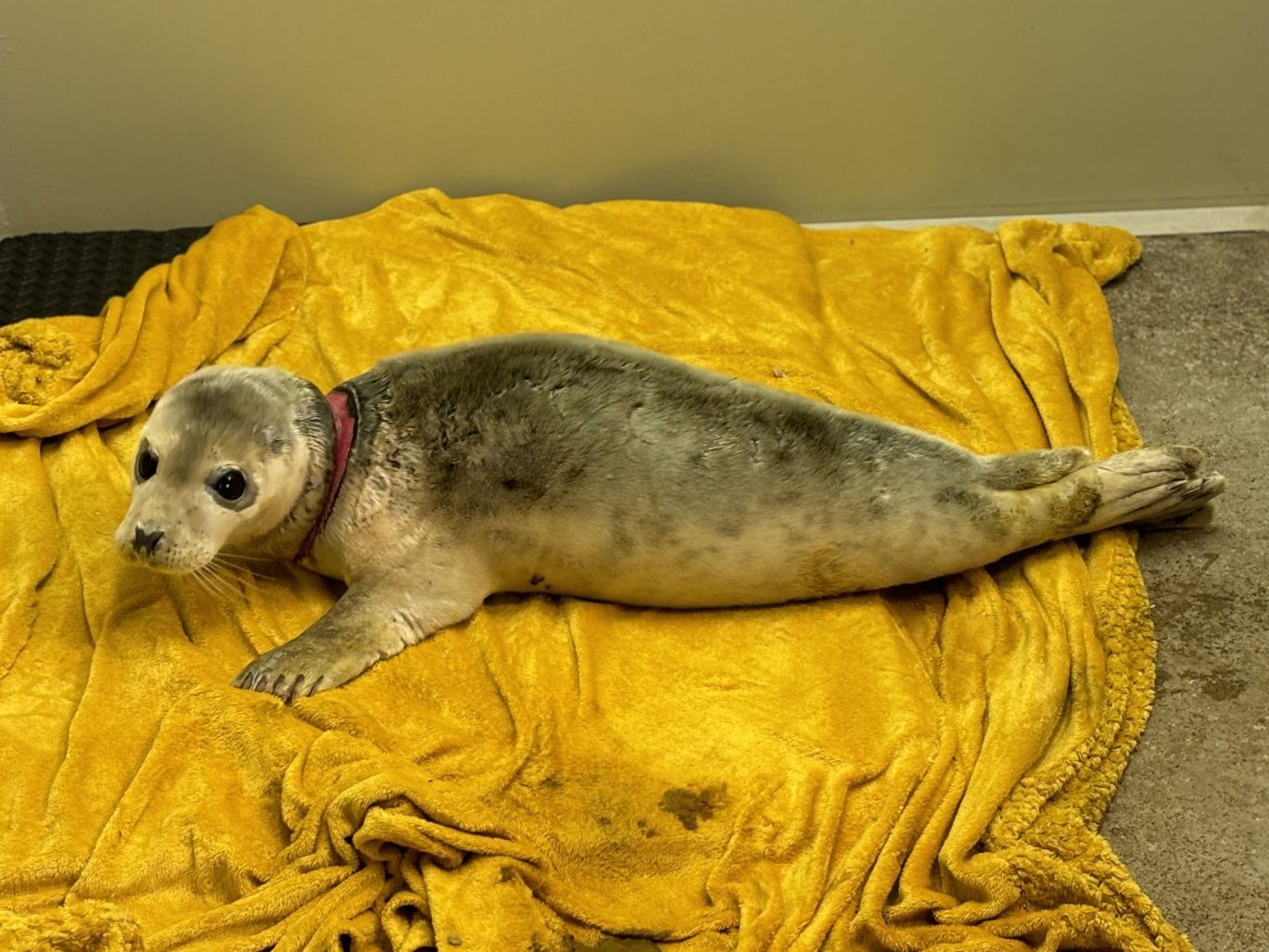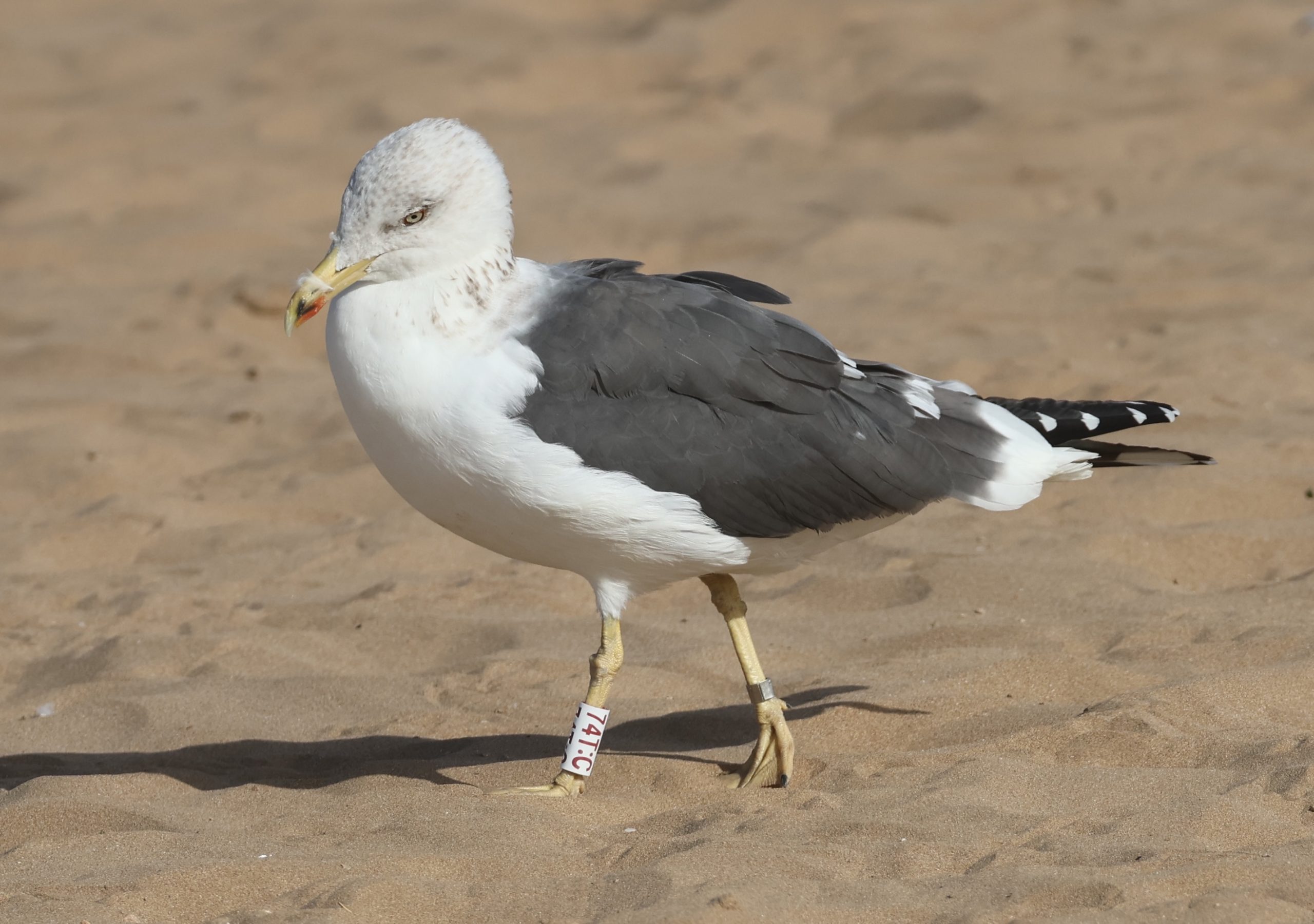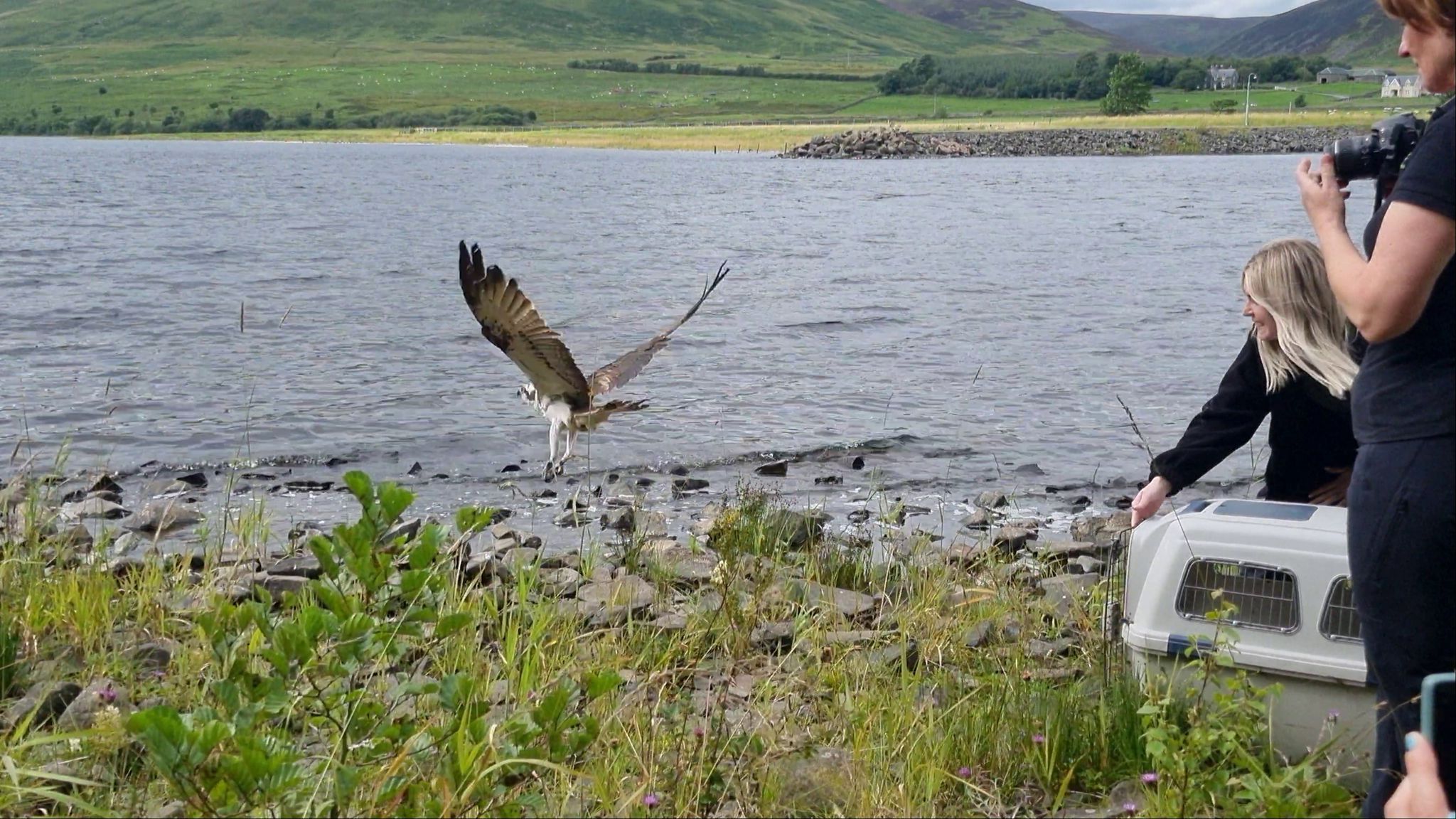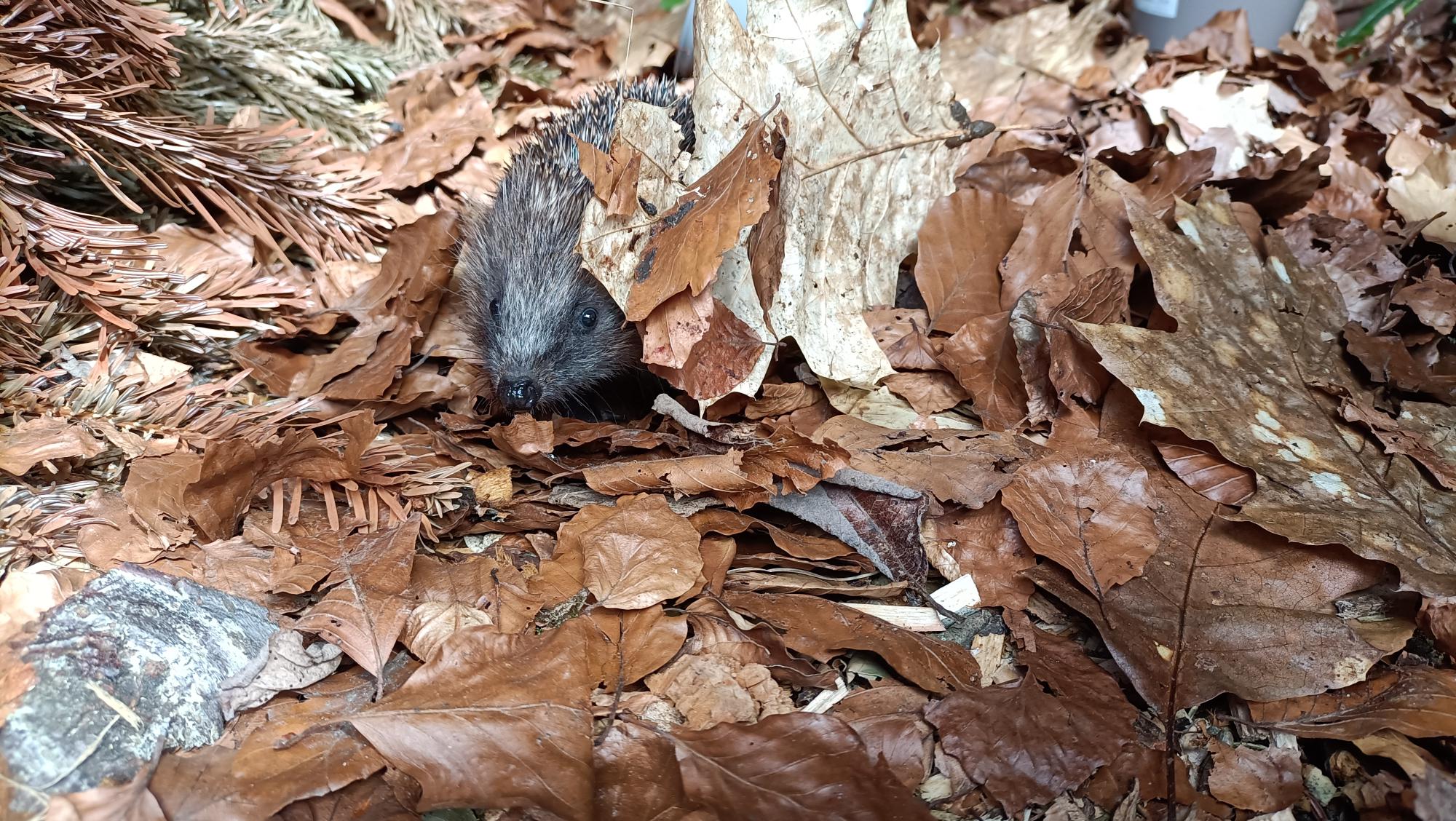A GREY seal who was found close to death after becoming entangled in fishing line has made a miraculous recovery and been released back into the wild.
Ariel was found with fishing gear wrapped so tightly around her neck it had almost decapitated her, when she was rescued by one of our animal rescue officers from a beach in Johnshaven, Montrose.
Heavily bleeding and with life threatening injuries, which included a deep wound to her neck, meant Ariel was found in a weakened state.
It was believed Ariel, who is believed to be at least a year old, could have been suffering for up to three weeks with the wound which had become severely infected.
She was rushed to our National Wildlife Rescue Centre at Fishcross were the dedicated seal rehabilitation team began round the clock care to nurse her back to health.
Wildlife Assistant Caitlin Ganley says: “Ariel was the worst entanglement case we’ve ever had to deal with. It was heart-breaking to see the extent of her injuries all of which could have been avoided.
“Seals are particularly vulnerable to becoming entangled in fishing lines, nets and other debris. Once trapped they often suffer slow painful deaths as the gear tightens around their necks and bodies.
“Although the vast majority of anglers are responsible and take care to clear away their equipment after they’ve used it, there is a minority of people who fish and don’t respect the environment and the wildlife that inhabits it.”
The dedicated wildlife team immediately removed the fishing gear from Ariel’s neck then began the complex process of cleaning and treating the seal’s wounds.
The injuries involved a strict regime of antibiotics and round the clock cleaning and dressing of wounds to prevent any further infection.
Ariel was also assist fed by staff as she was refusing to eat on her own.
The whole process took several months before Ariel was finally nursed back to health and a 56kg weight.
Caitlin says: “Our main goal was to keep Ariel alive but her welfare and how we were managing her pain and stress was equally important too.
“Once she started eating on her own we knew she had a fighting chance of recovery.
“At that point, it became a matter of allowing her body to heal and getting her weight up so she could be released.”
After three months Ariel was finally released much to the joy of the wildlife team.
Caitlin says: “ It was so emotional watching Ariel swim off as a team we were thrilled to watch her return to the sea, fully healed and ready to resume her life in the wild were she belongs.
“This is why we do the work we do and always go the extra mile.
“We put so much of ourselves into her recovery and watching her swim away, knowing she has a second chance makes all the hard work worthwhile.”

More advice on seals here







